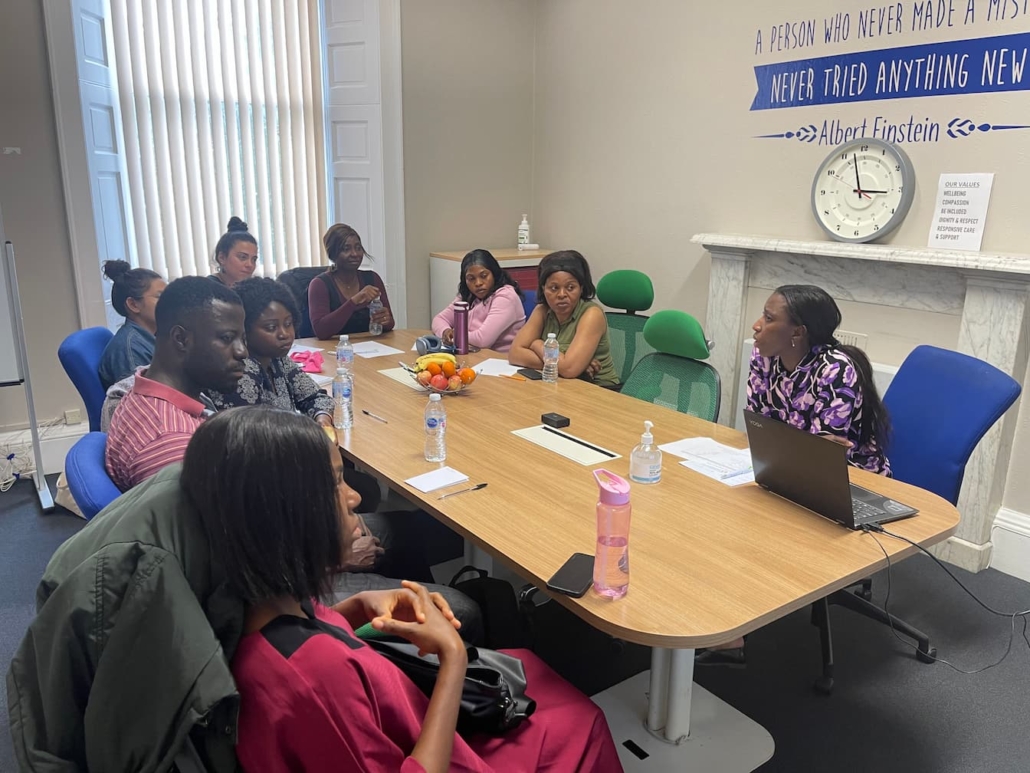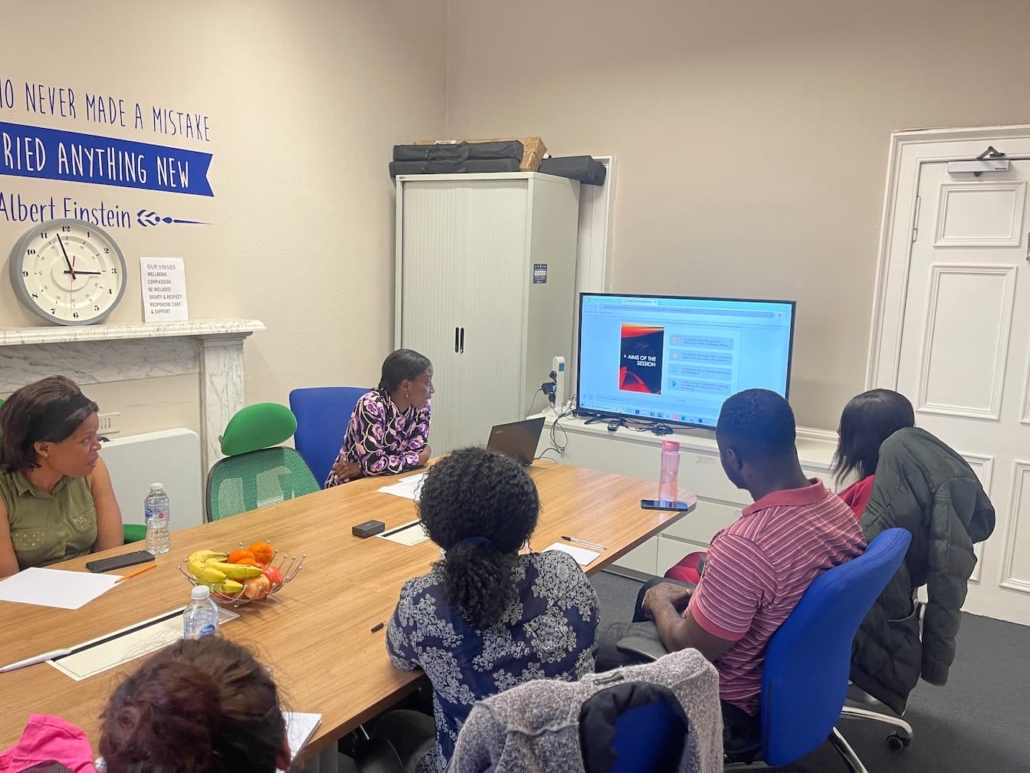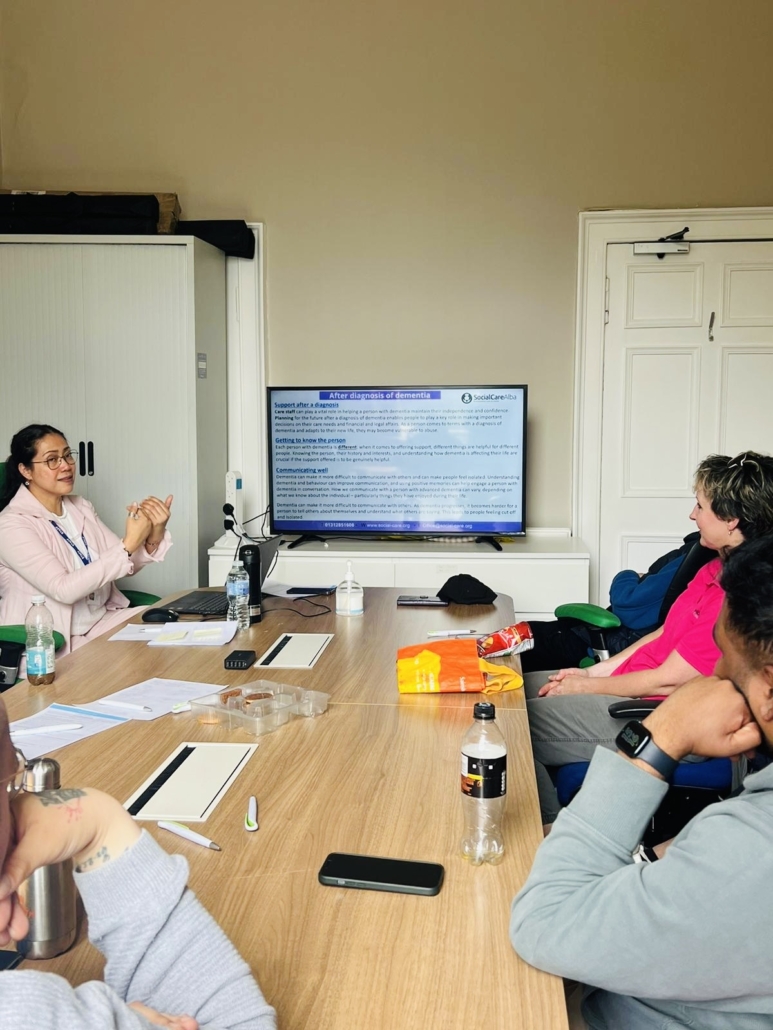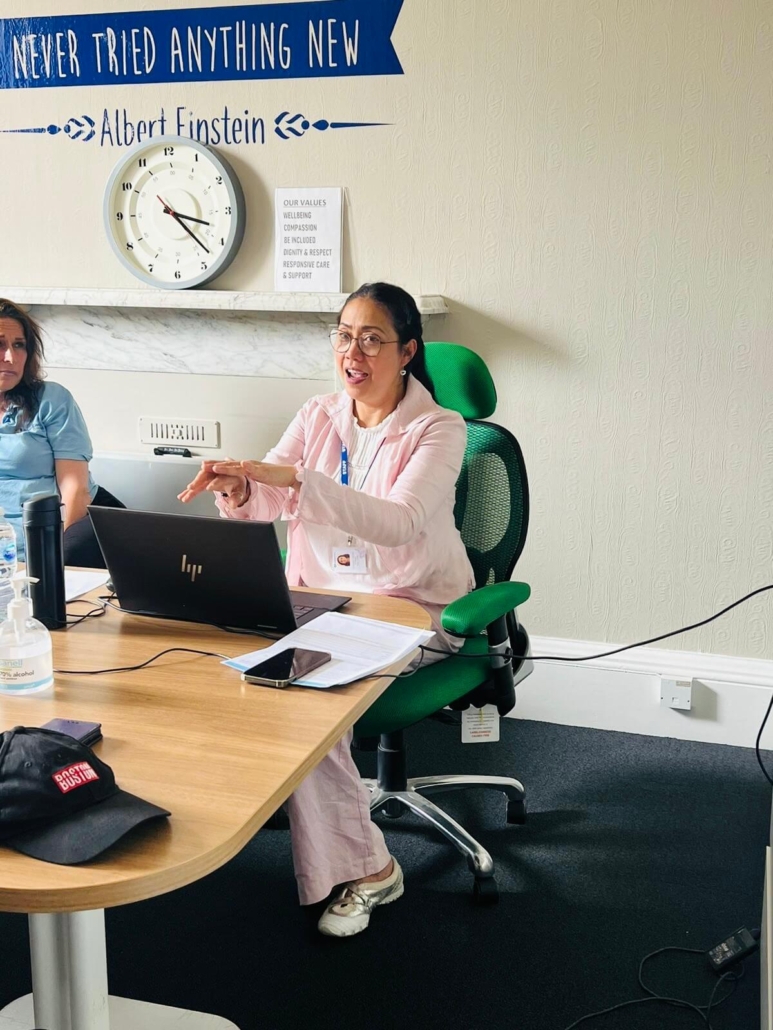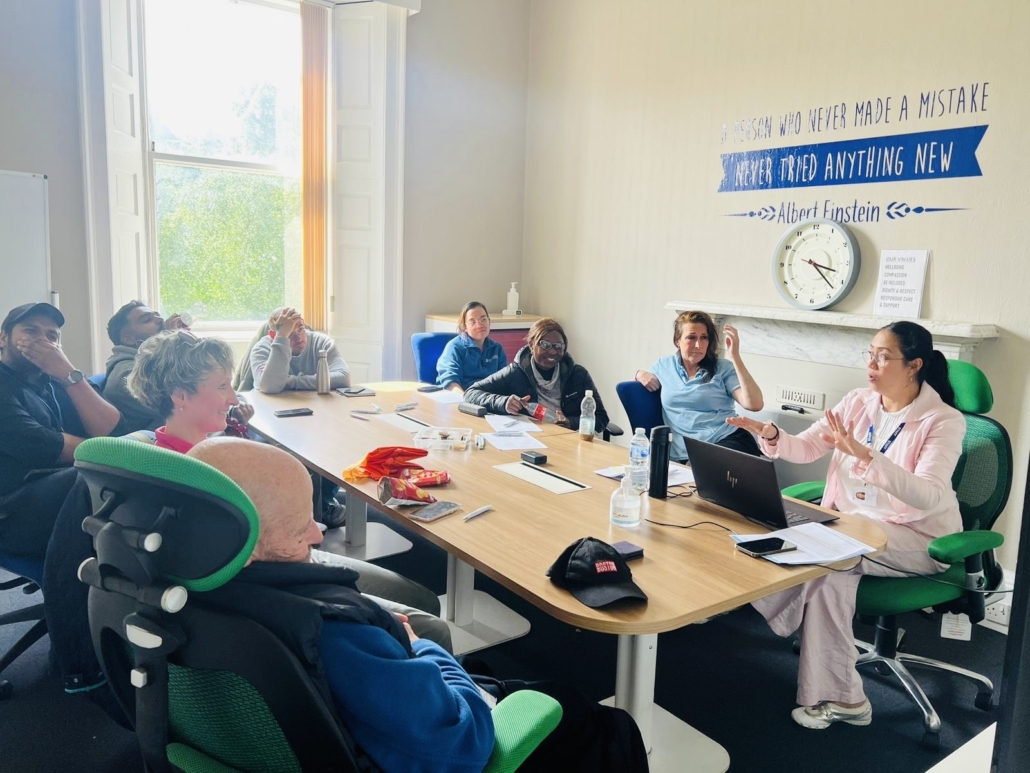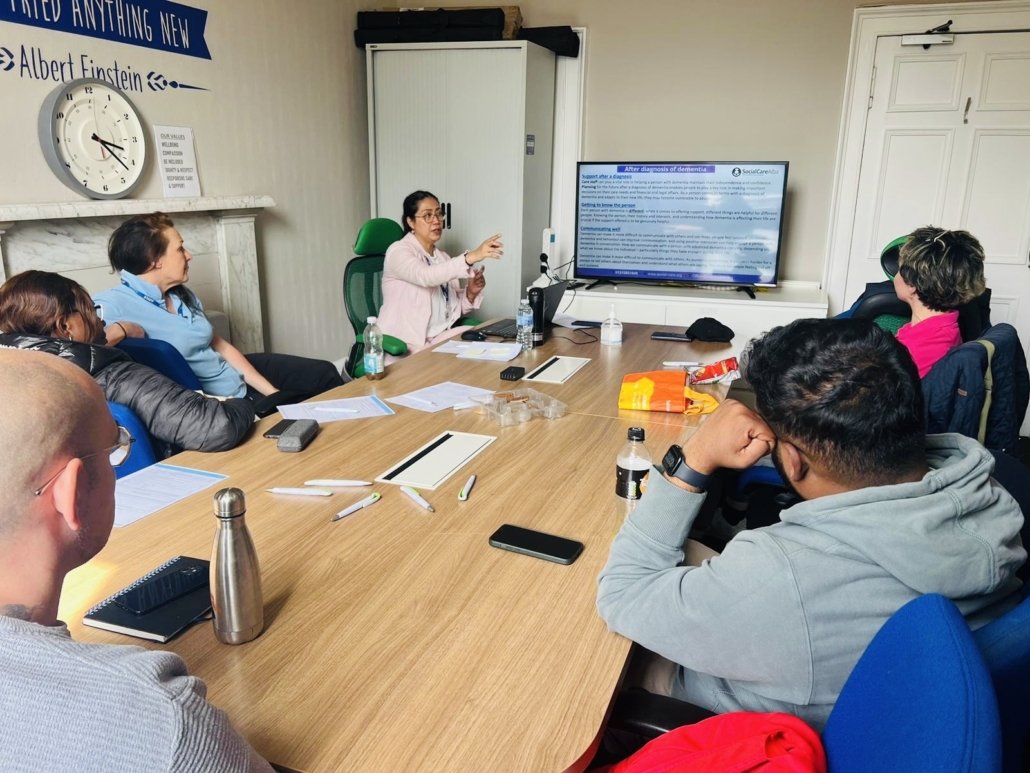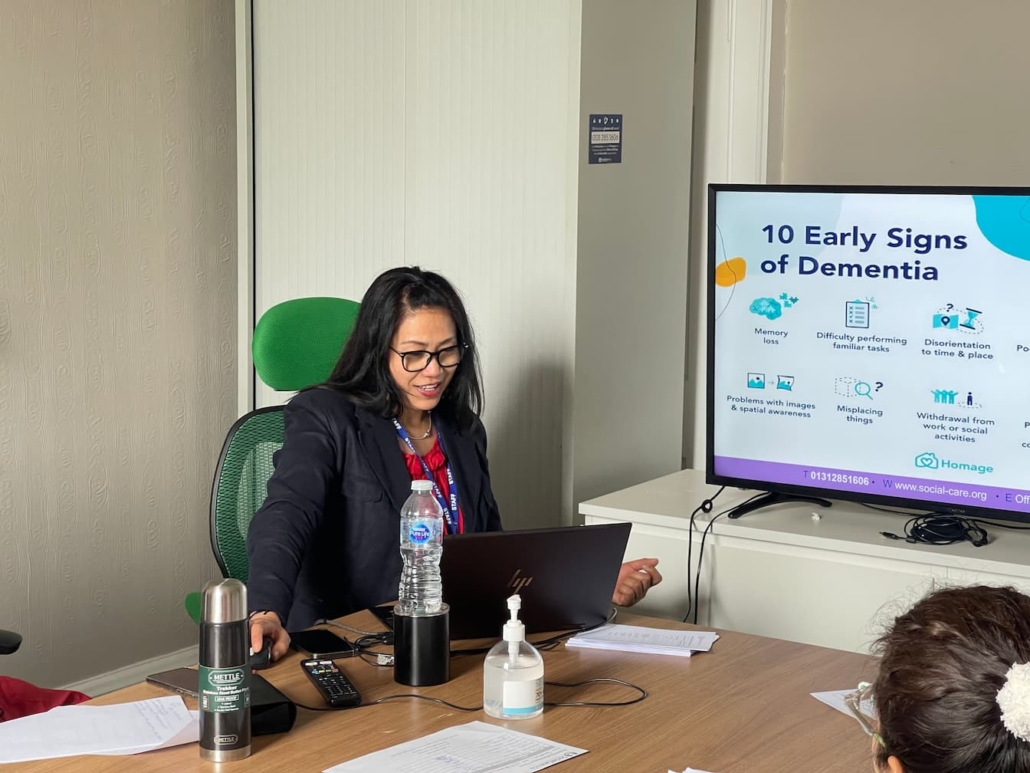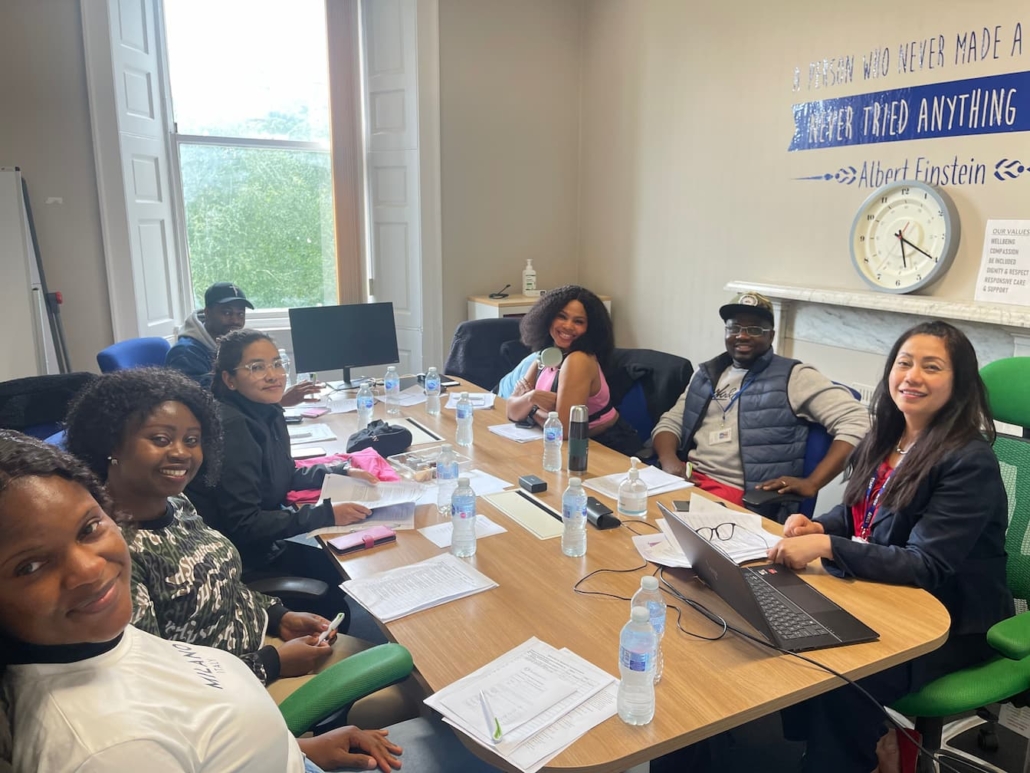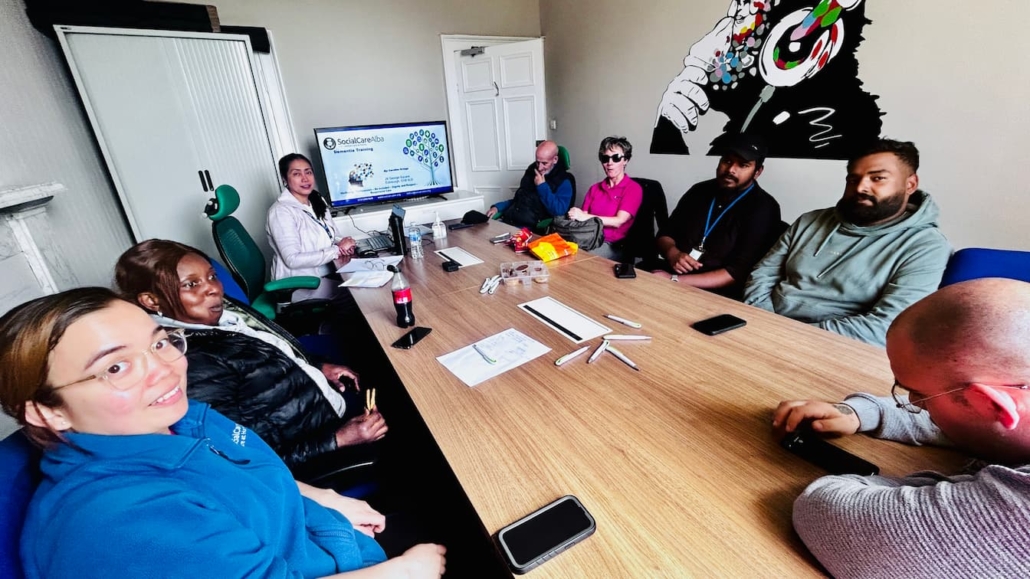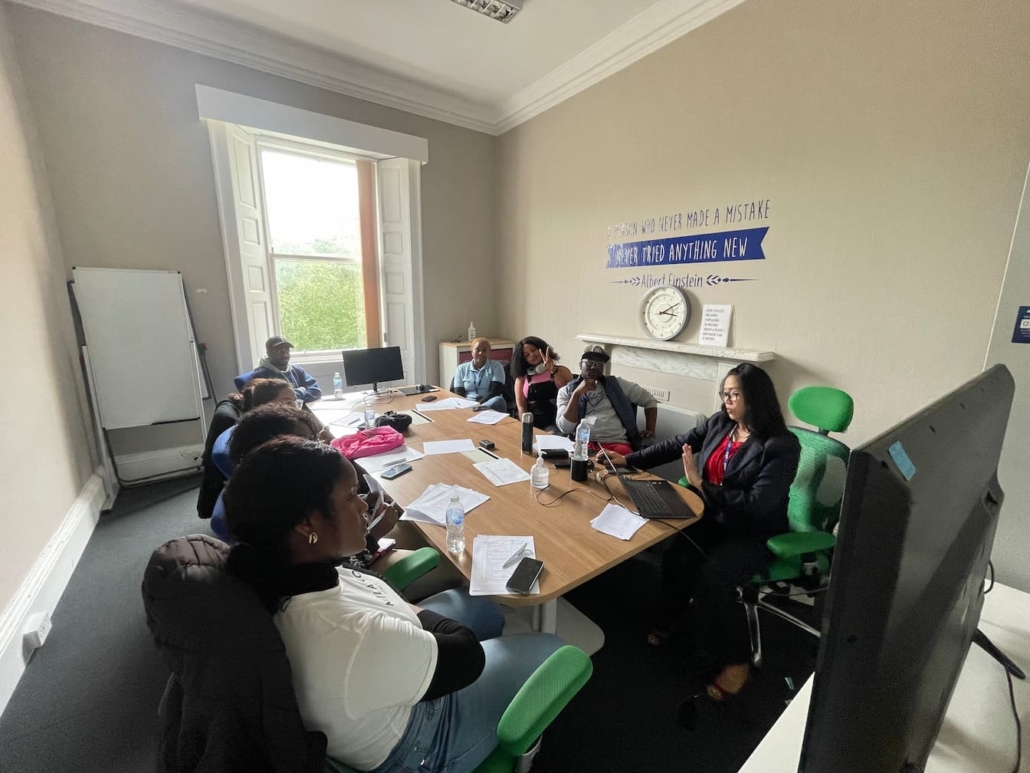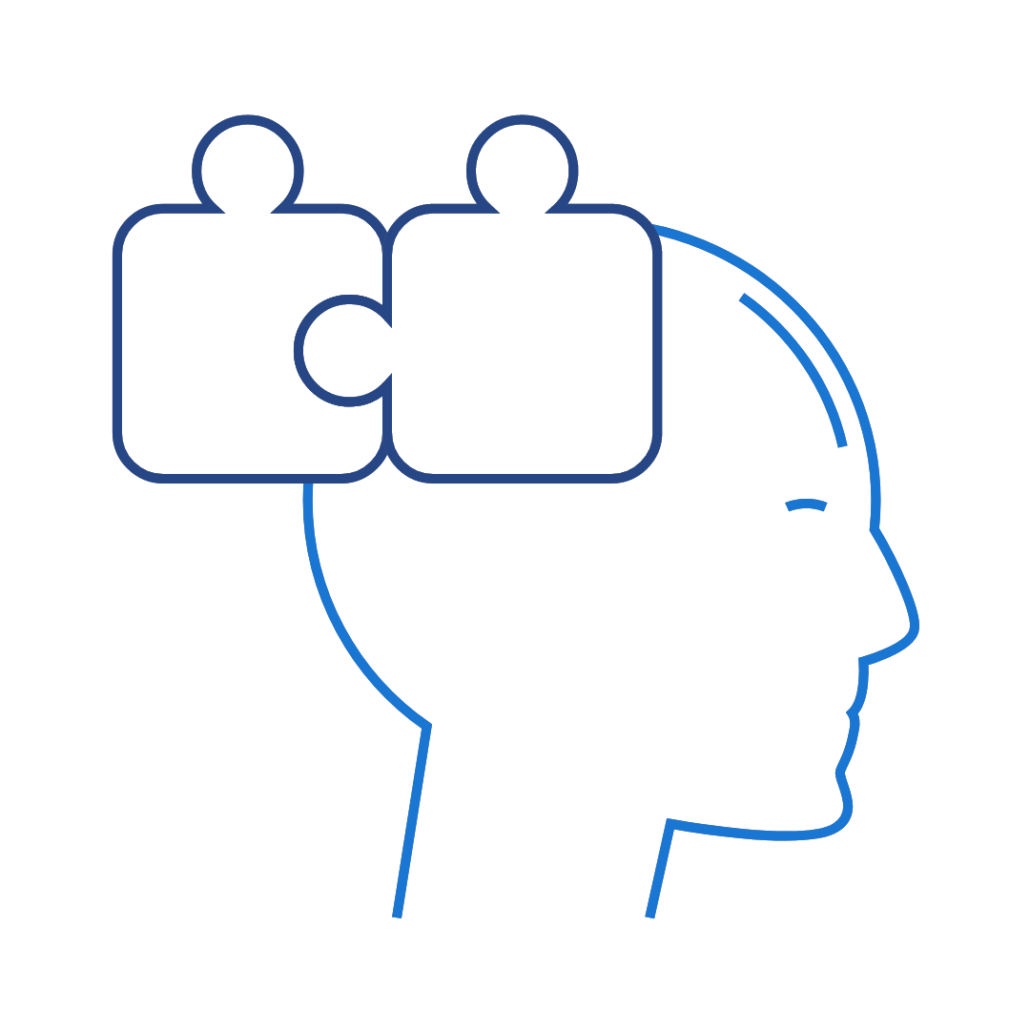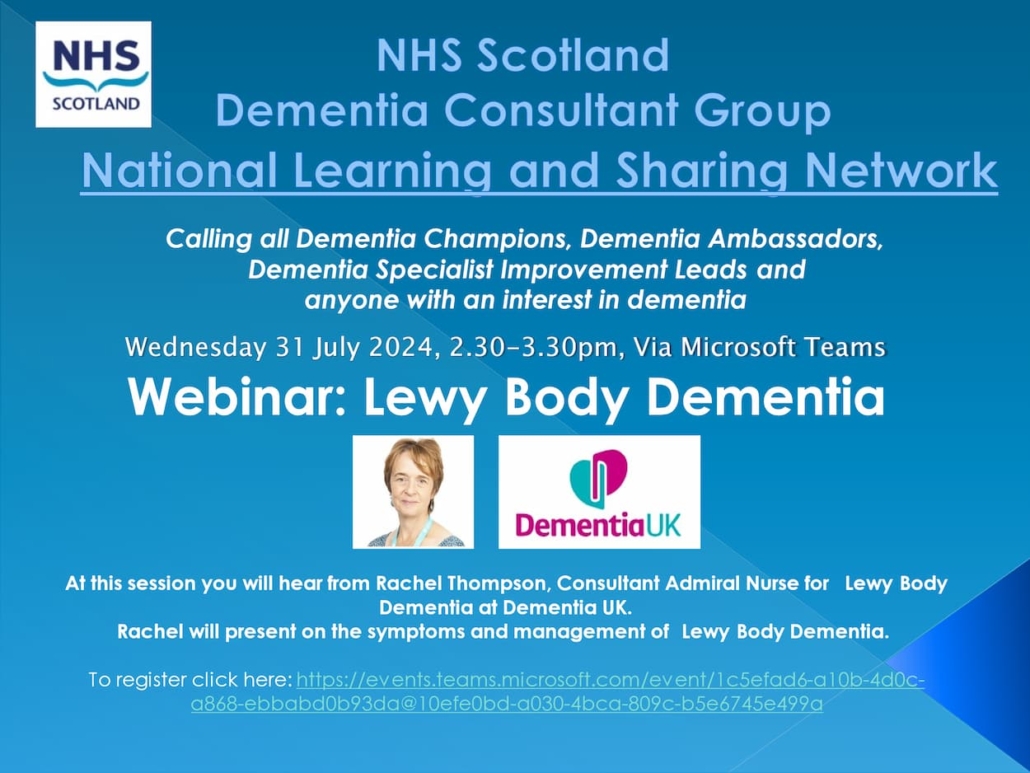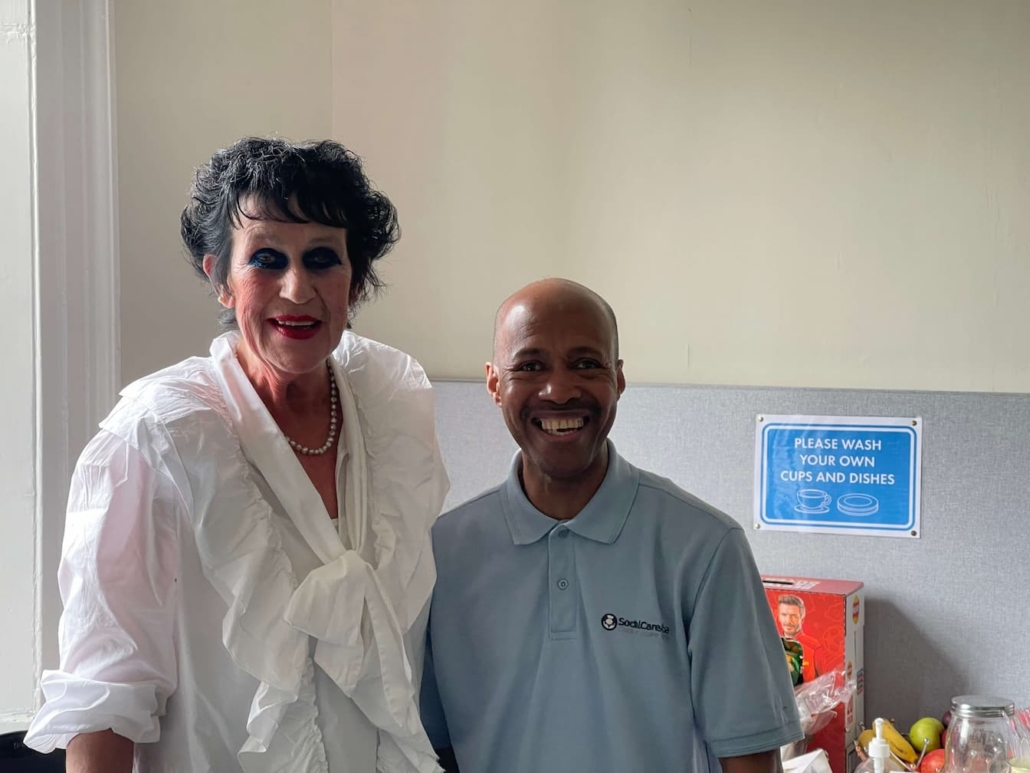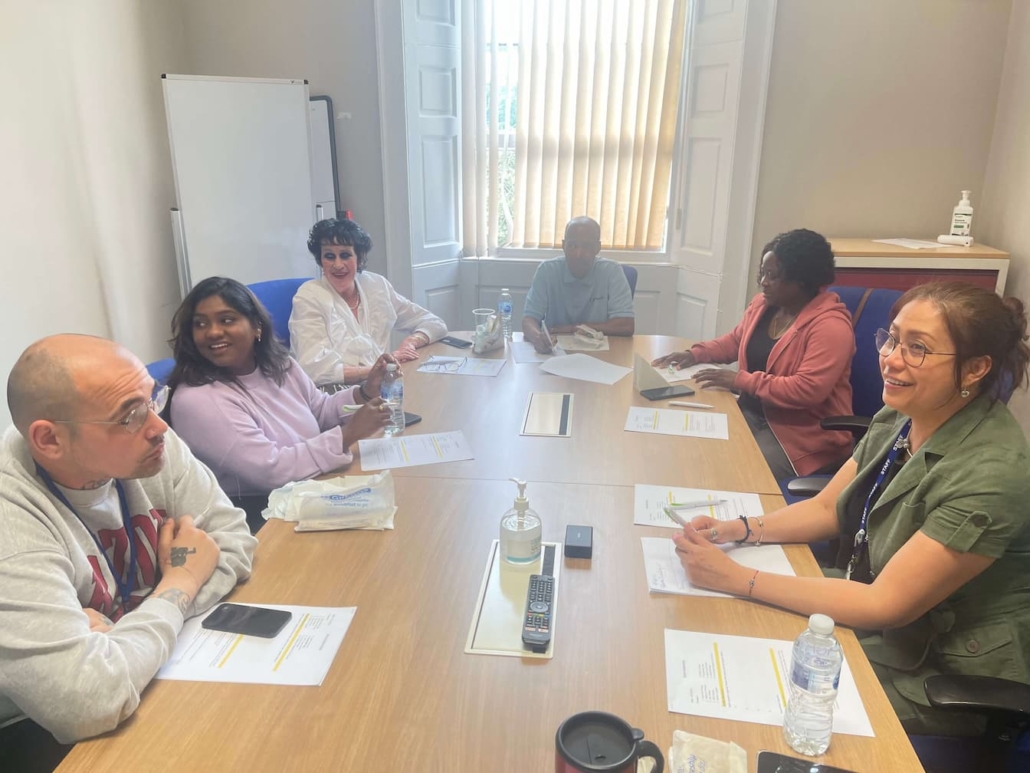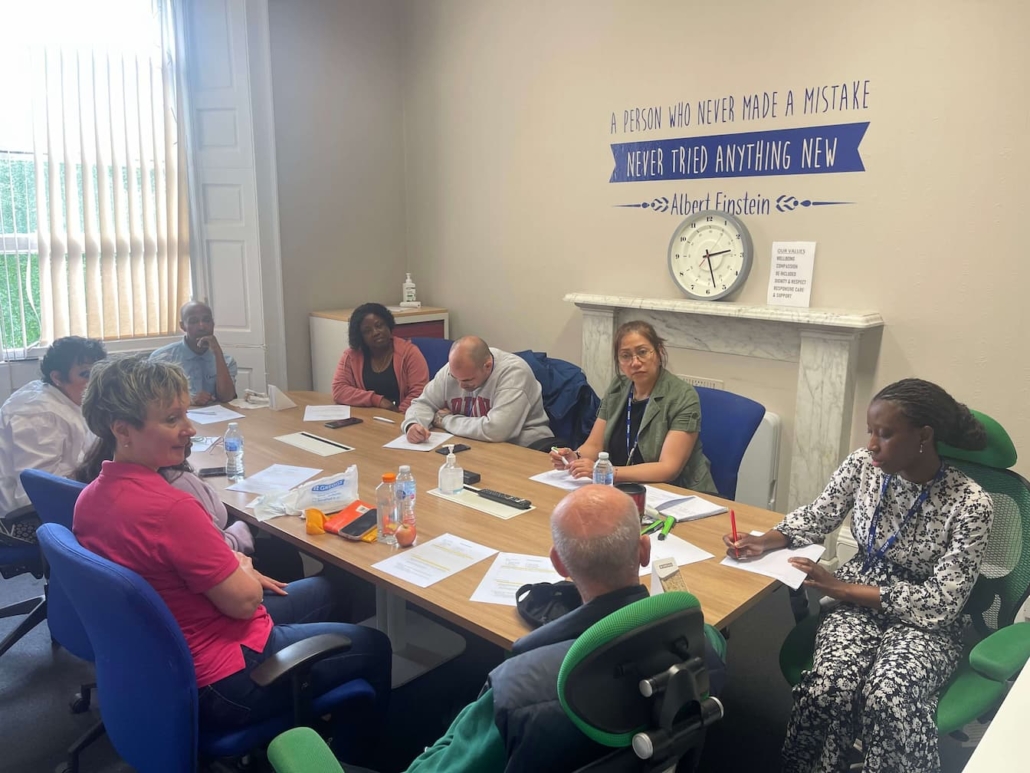Caring for a loved one with dementia can be deeply rewarding yet challenging. Dementia not only affects the individual diagnosed but also their family and friends. At Social Care Alba, we understand the complexities of dementia care and are committed to providing the support and resources needed to navigate this journey. Here, we share practical tips and strategies to help carers provide the best possible care for those living with dementia.
Understanding Dementia
Dementia is an umbrella term used to describe a range of progressive neurological disorders, with Alzheimer’s disease being the most common. Symptoms can include memory loss, confusion, difficulty with communication, and changes in behaviour. Understanding the specific type and stage of dementia your loved one is experiencing is crucial for providing appropriate care.
Tips for Dementia Care
1. Create a Safe and Supportive Environment
Safety is paramount when caring for someone with dementia. Make adjustments to the home to prevent falls and injuries, such as installing grab rails, securing rugs, and ensuring good lighting. Simplify the environment by reducing clutter and creating clear, navigable spaces. Consistent routines and familiar surroundings can help reduce confusion and anxiety.
2. Effective Communication
Communication can become challenging as dementia progresses. Use clear, simple language and maintain eye contact. Be patient and give your loved one time to respond. Non-verbal communication, such as gentle touch and reassuring gestures, can also be very effective. Avoid correcting or arguing, as this can cause frustration and distress.
3. Promote Independence
Encourage your loved one to maintain as much independence as possible. Break tasks into smaller, manageable steps and provide gentle guidance when needed. Activities that align with their interests and abilities can enhance their sense of accomplishment and well-being.
4. Stay Active and Engaged
Physical and mental stimulation are important for individuals with dementia. Encourage regular exercise, such as walking or light stretching, to promote physical health. Engage in activities that stimulate the mind, like puzzles, reading, or listening to music. Social interaction is equally important, so try to involve your loved one in family activities and social events.
5. Manage Behavioural Changes
Behavioural changes, such as agitation, aggression, or wandering, are common in dementia. Try to identify triggers and understand the underlying causes of these behaviours. Respond with empathy and reassurance, and use distraction techniques to redirect their attention. It’s also helpful to establish a calm and soothing environment to minimise stress.
6. Take Care of Yourself
Caring for someone with dementia can be physically and emotionally demanding. It’s essential to take care of your own health and well-being. Don’t hesitate to ask for help from other family members, friends, or professional carers. Make time for regular breaks, pursue your own interests, and consider joining a support group for carers.
Strategies for Professional Support
1. Personalised Care Plans
At Social Care Alba, we develop personalised care plans tailored to the unique needs of each client. These plans are created in collaboration with the client and their family, ensuring that all aspects of their care are considered and addressed.
2. Specialised Dementia Training for Carers
Our carers undergo specialised training to understand the complexities of dementia and provide compassionate, effective support. This training includes techniques for managing challenging behaviours, effective communication strategies, and ways to promote independence and engagement.
3. Respite Care
We offer respite care services to give primary carers a much-needed break. Whether it’s for a few hours or a few days, respite care ensures that your loved one continues to receive high-quality care while you recharge and take care of yourself.
4. Support Groups and Resources
Social Care Alba shares agenda dates of events, relevant links, and resources for both carers and clients. These materials offer valuable opportunities to connect with others, gain insights, and receive emotional support from those who understand the challenges of dementia care.
Caring for a loved one with dementia is a journey that requires patience, understanding, and a wealth of strategies to manage the challenges that arise. By creating a safe environment, communicating effectively, promoting independence, staying active, managing behavioural changes, and taking care of yourself, you can provide compassionate and effective care.
At Social Care Alba, we are dedicated to supporting families through every stage of dementia care. Our personalised care plans, specialised training, respite services, and support resources are designed to make this journey as smooth as possible. For more information on our dementia care services and how we can assist you, please see our main homepage or get in touch.
Related links
